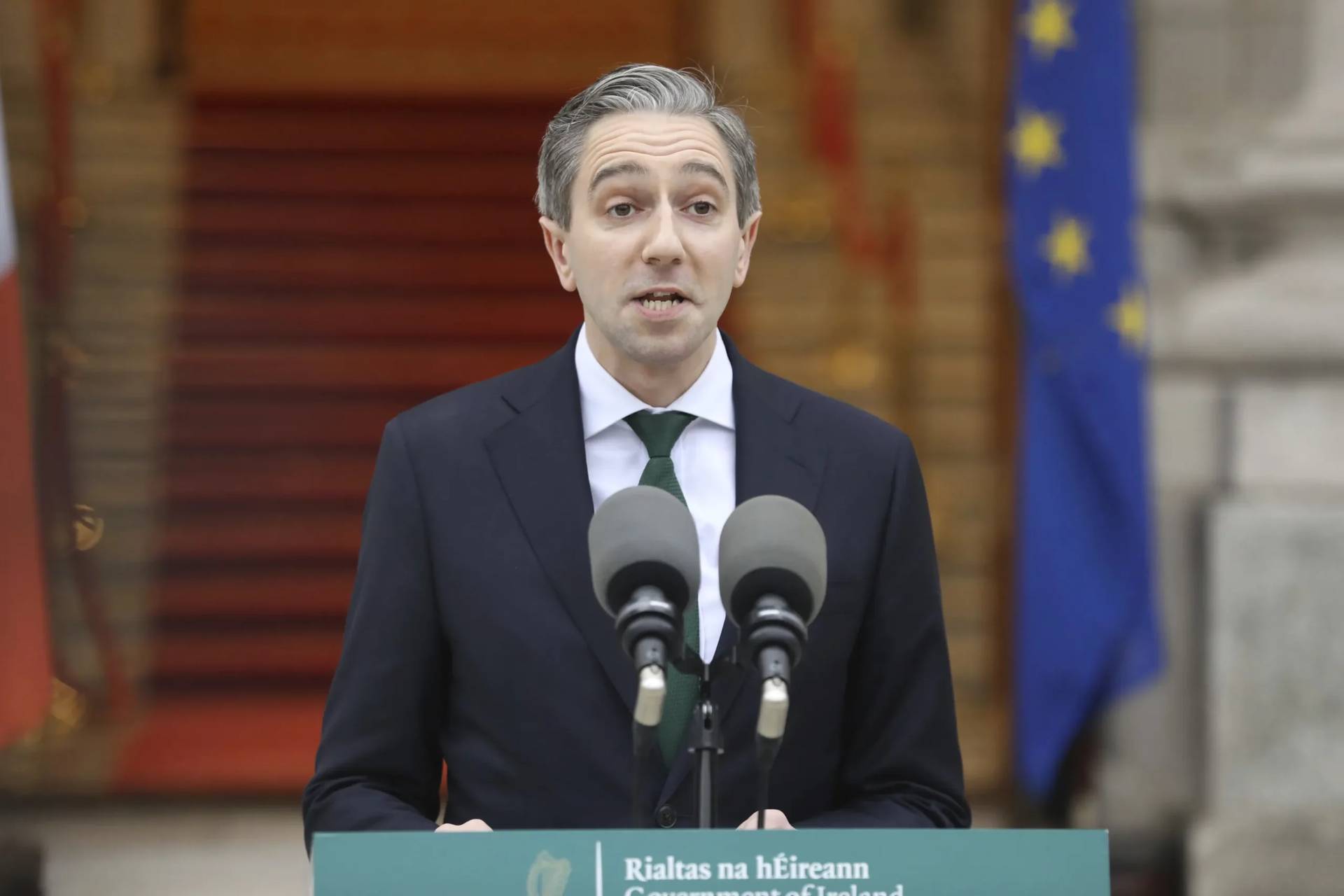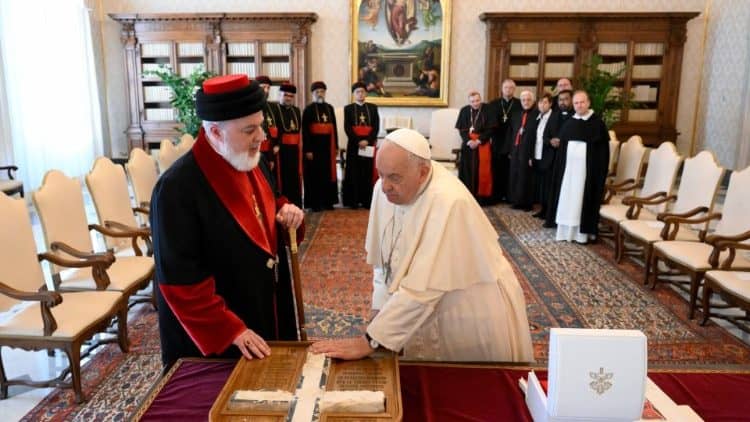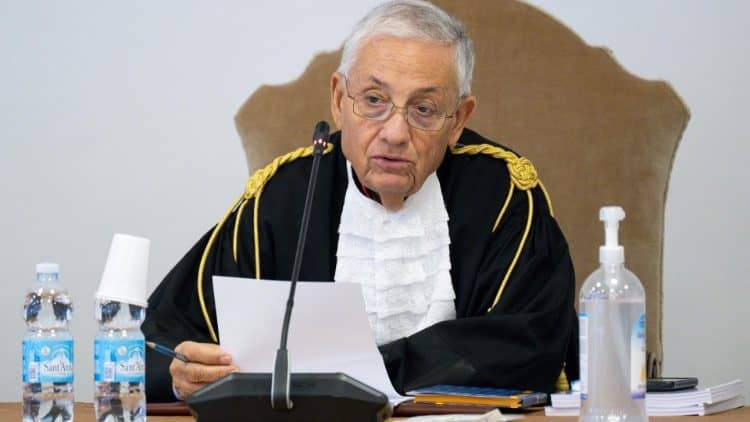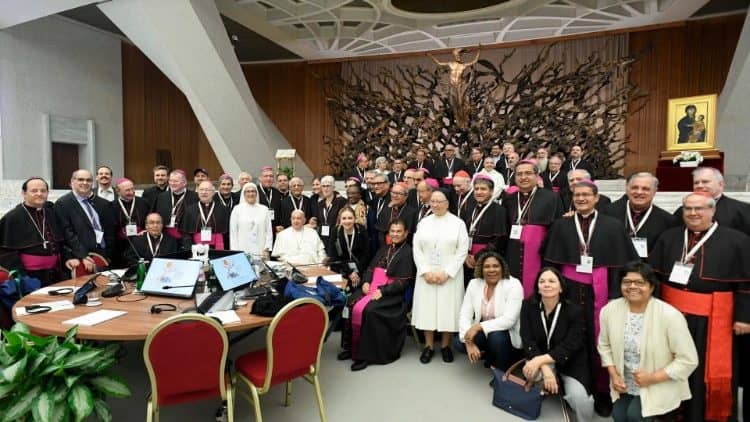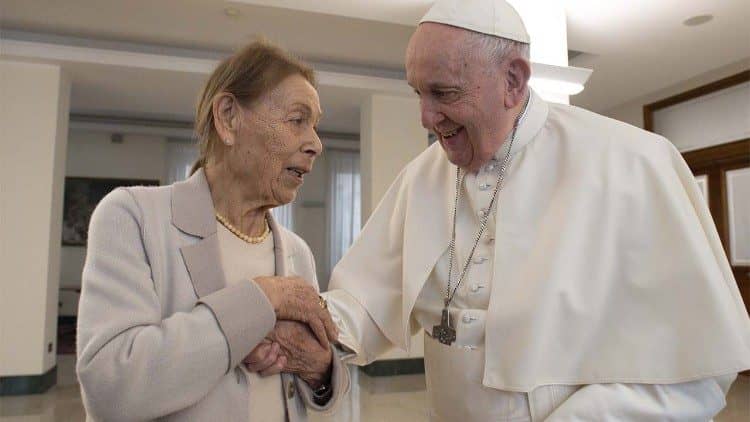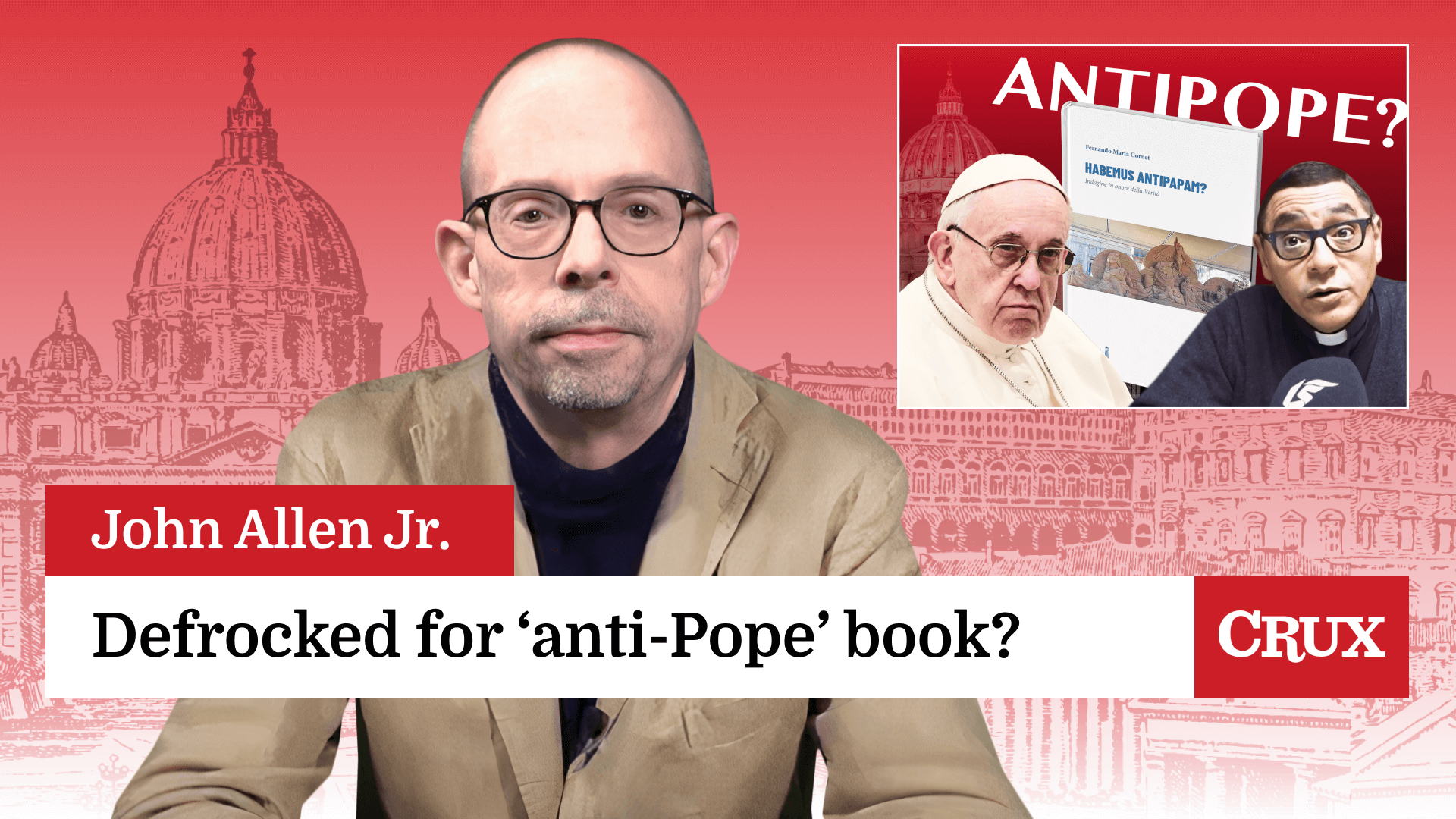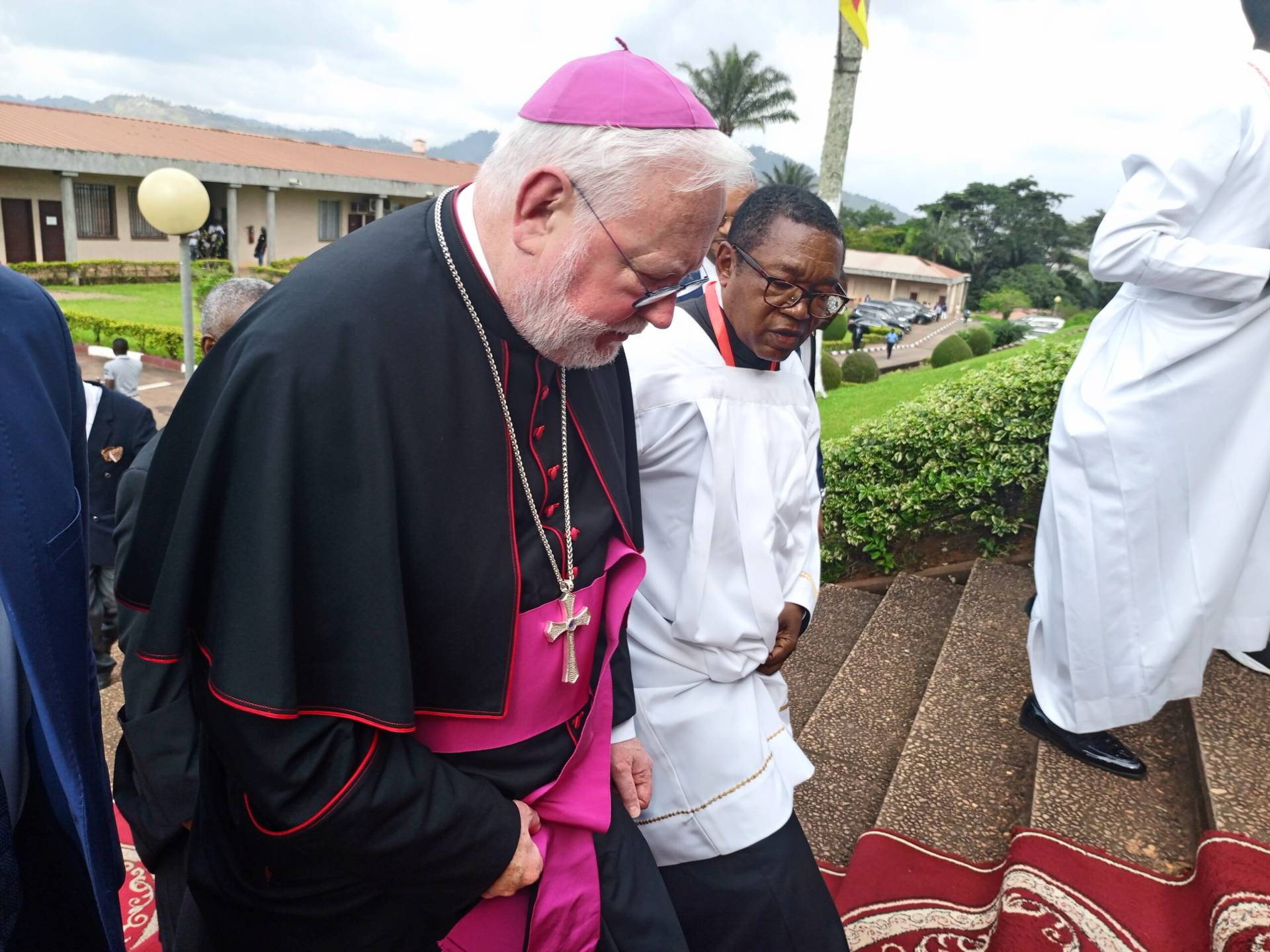ROME – When Mahatma Ghandi launched his famous “Salt March” in March 1930, protesting British policies banning Indians from producing their own salt, thereby compelling them to buy heavily taxed imports, he set in motion a series of events that would lead to the collapse of British colonial rule and the independence of India seventeen years later.
The phrase “Salt March” thus has passed into history as a shorthand for a movement of nonviolent civil disobedience, premised not merely on obtaining some minor economic or political benefit, but overturning an unjust system from its roots.
It is, in other words, an ambitious concept, making its invocation by the incoming leader of the closest thing to a trade union the Vatican has a potential harbinger of big things to come.
“We’ll continue, with courage, our journey, our symbolic ‘Salt March,’ dedicated to upholding our human and Christian principles, allowing them to guide and illuminate us,” said Paola Monaco, the new secretary general of the Vatican’s Association of Lay Employees, in an Oct. 18 open letter.
“Ours will be a peaceful path, but a determined one, of structural transformation,” Monaco wrote.
Although most media attention in Rome this month is focused on the final assembly of the Synod of Bishops on synodality, one could argue that the Oct. 16 meeting of the executive committee of the employees’ association, which resulted in Monaco’s election, is actually the bigger deal in terms of potential long-term consequences.
To put it differently, the synod has featured a great deal of rhetoric about participation and shared authority in the church; the association, and its push for meaningful labor/management dialogue in the Vatican, amounts to a critical acid test of whether that rhetoric is real.
Monaco, 50, has worked in the Vatican for twenty years, spending much of that time in what once was the Prefecture for Economic Affairs and later with the Council for the Economy. Since 2022, she’s served as an assistant to the president of the Pontifical Committee for International Eucharistic Congresses.
Here’s how Monaco described the association’s core aim in her open letter.
“The aim of our work is to walk together with our superiors towards a new era, based on a dialogic relationship in which both parties, seated at the same table and conscious of their mutual dignity, which transcends hierarchical differences, can find solutions as fair and satisfying as possible,” she wrote.
“The voice of workers can no longer be ignored,” Monaco said. “It’s anachronistic to make decisions unilaterally and to impose them from on high.”
That vision, to be candid, is about as far from the lived reality of the Vatican today as Gandhi’s vision of an emancipated India was from the realities of British rule.
Not so long ago, senior Vatican officials were offered the opportunity to participate in a seminar on management put on by experts from around the world. One of the highest-ranking figures in the power structure chortled at the invitation, telling a group of visitors to his office, “Management is simple: I give orders, and my subordinates obey them.”
That’s the mentality Monaco and her association are up against.
Over the years, I’ve known scores of people who work in the Vatican – not just laity, by the way, but also clergy and religious. Almost to a person, they’ve reported a strained working environment, in which creativity is too often discouraged, communication and collaboration across departmental lines almost non-existent, and superiors tend to have a “command and control” approach to leadership.
In response, many of these people have moved on as soon as practically possible. Others have made their peace with the status quo, and they try to do as much good as possible under the circumstances. A brave few have struggled to change the system, generally without much effect.
Monaco, however, may have come along at a propitious moment, because three things are different today.
First, the Vatican is facing an increasingly dire financial situation, which implies that in the future its payroll will have to be reduced. Those who remain will have to work harder, better and smarter, with creativity and multitasking at a premium – which means, frankly, that the system will need them more than they need the system, giving employees a new degree of leverage.
Second, in the past the Vatican has benefitted from the youth unemployment rate in Italy, which reached an all-time high of 43.6 percent in July 2014. In a context in which almost one in two Italians 24 and under was without work, many young people just starting out were willing to take even a unsatisfying and demeaning job over no paycheck at all.
Today, however, that rate is only 18.3 percent, and has been falling steadily over the last decade. In part, that’s a result of demographics, as Italy today is the oldest country in the European Union with a historically low fertility rate and a shrinking population of youth. Young Italians just starting their careers will be able to be more selective, meaning the Vatican may experience difficulties filling slots if it doesn’t clean up its act.
Third and finally, there’s the incongruity between Pope Francis preaching dialogue and synodality, but the Vatican itself steadfastly refusing to practice it with its own workforce. At some point, the cognitive dissonance may become unsustainable, and something will have to give.
Does all of that mean the “new era” described by Monaco is at hand? Perhaps, though arguably no institution on earth is as adept at waiting out purported cycles of reform, only to return to business as usual, as the Vatican.
On the other hand, bringing down the British empire also must have seemed an unlikely prospect when Gandhi and a handful of his followers set out from Sabarmati Ashram on March 12, 1930, beginning what came to be known as the “Salt March.”
It will be fascinating to watch Monaco and company try to achieve a similar transformation inside Vatican walls. Whether they succeed remains to be seen, but the effort at least carries the possibility of more substantial change than anything coming out of the Synod of Bishops this month.







